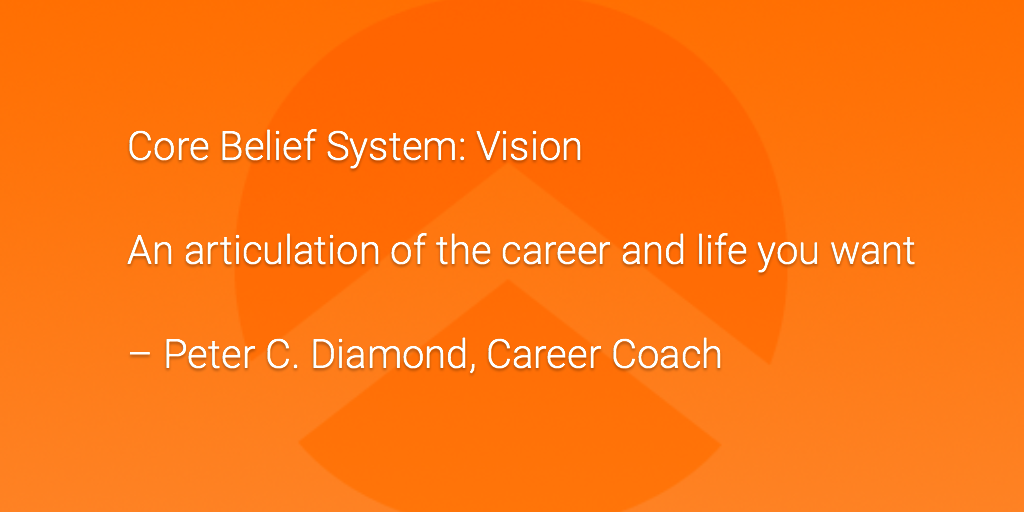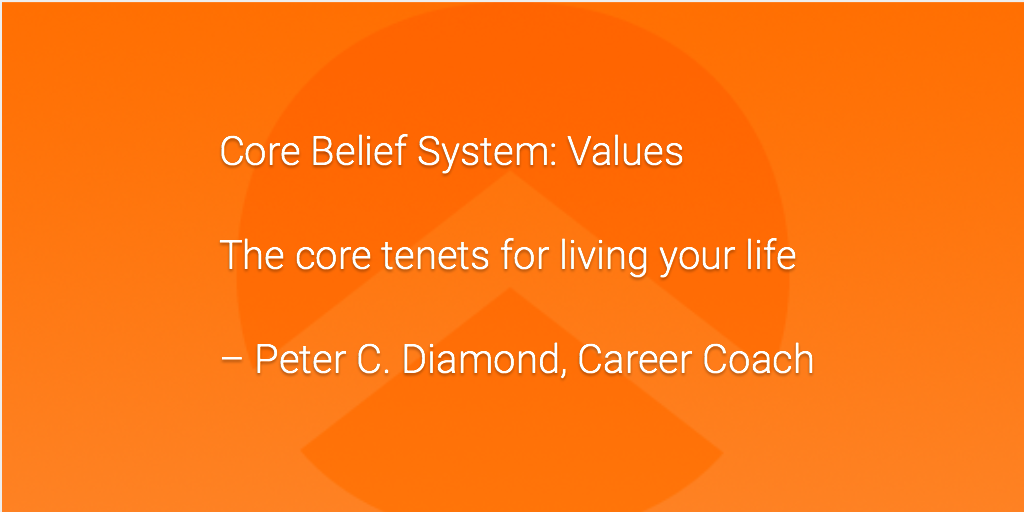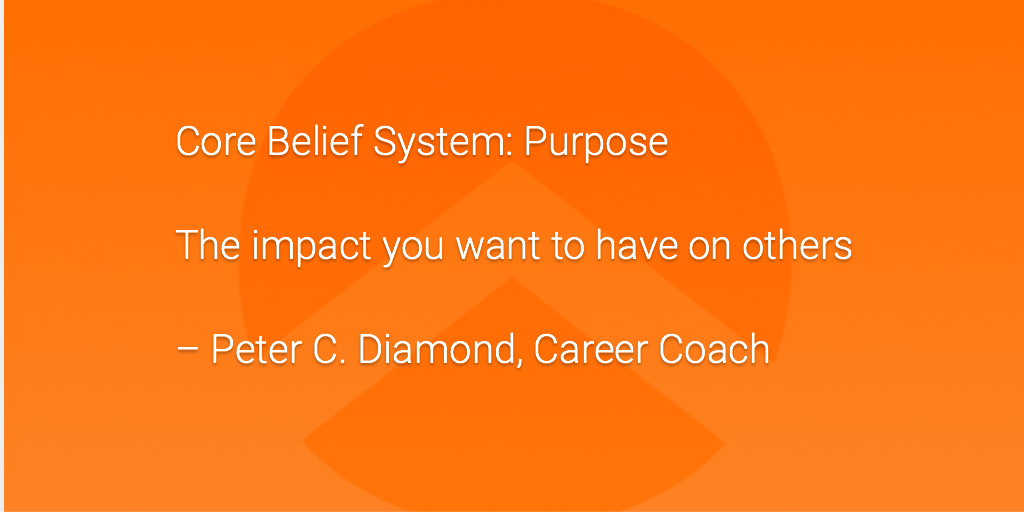
Your career, if you so choose, could span 40 years or more. Thus having a resilient career over the long term is no small feat. Undoubtedly, there will be times when you feel vulnerable and unsure about what’s next. These are the times when you need to be resilient. The cornerstone of career resiliency is having a strong core belief system that guides you during turbulent times.
In my book, Amplify Your Career and Life, I define a core belief system as vision, values, and purpose. A core belief system will not only ground you but will elevate you. It will provide clarity around what you want and the commitment to live it.
How to Define Your Vision
During my time as an executive coach, I witness many people aged thirty, forty or fifty struggling to find their way forward. Many have lost sight of who they are and what they want. Unfortunately, this means they are slowly giving away themselves to others until they no longer recognize who they are or they slip into survival mode. In time, they become angry, frustrated, and disengaged.
Your vision creates a path forward. It needs to be steeped in something concrete and actionable. For you, it may mean creating systems and procedures that enable collaboration, or helping companies create sustainable business practices, or working for a company that is community and family oriented. For me, it meant exploring a way of life where I would have a personal impact on people. I knew I wanted the next phase of my life to be more meaningful and to give something back to humanity. This insight became the underpinning of my vision that included becoming an executive coach.
To get started, here are a few key questions to ask yourself:
- What are three things I like to do everyday at work?
- What type of work environment stimulates and motivates me?
You can learn more about crafting your vision in chapter 5 of my book, available on Amazon and iTunes.
How to Define Your Values
Your values are an indispensable resource for making decisions. This is especially true when considering big decisions such as a career change. Your values are a touchstone for evaluating a new position or company. When you are interviewing, you can use your values as a guide. Does the company and its employees share your values? Is this a place where you can exercise your values? Reflecting on your values also opens up a whole new line of questions you may want to ask a potential employer. Your observations and decisions during the interviewing process will be more insightful when view evaluated against your values. Ultimately, your life and career will be more fulfilled the more you live your values.
To get started, here are a few key questions to ask yourself:
- How would I describe myself?
- How do others describe me?
You can learn more about crafting your vision in chapter 5 of my book, available on Amazon and iTunes.
How to Define Your Purpose
Your purpose is what propels you out of bed every morning. I never thought about my purpose until I was going through coaching certification. But now, it is integral to who I am and how I want to be. My purpose is what guides my interaction with others. When I enter into a new situation, I ask myself, “Will this allow me to fulfill my purpose?” And at the end of the day, I can ask myself, “How much did I live my purpose?”
Defining a purpose is central to many self-help books. With that, comes enormous pressure to define the perfect purpose. People think it should be noble and carry a certain level of gravitas. Their purpose should be so outstanding that when they are at a cocktail party they will be proud to share their purpose and people will respond in awe. Herein lies the typical dilemma. “How will I know I have the ‘right’ purpose? I want mine to be impressive.” This is when you have to stop yourself and reset expectations. Your purpose is first and foremost for you. There is not a right or wrong purpose. One is not nobler than the next. Furthermore, the exact words you choose are not as important as the meaning. Does the meaning resonate with you? That is the essential question to answer.
To get started, here are a few key questions to ask yourself:
- When I am at my best, I am…
- When I am most present and engaged, I am…?
You can learn more about crafting your purpose in chapter 5 of my book, available on Amazon and iTunes.
Crafting a core belief system can be daunting but it doesn’t have to be. To help you get started, I developed The Amplify Workbook that contains exercises specially designed to help with your vision, values and purpose. Download it for free.
I’d like to know how your core belief system has made your career more resilient.



